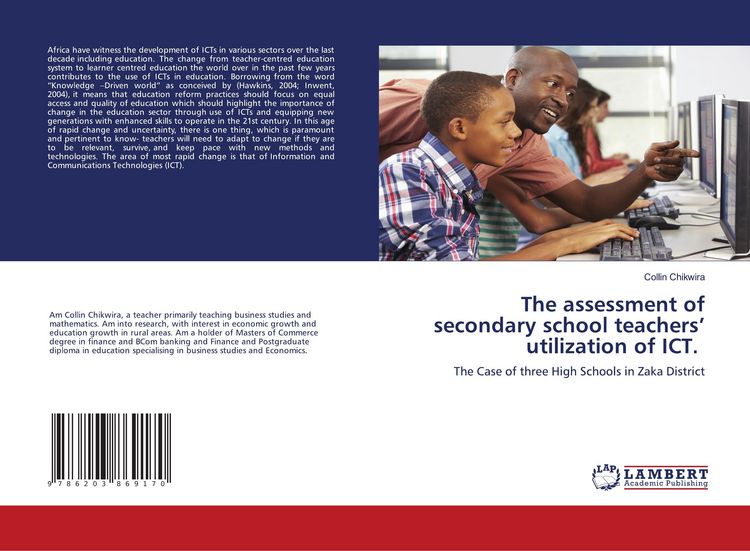
The assessment of secondary school teachers' utilization of ICT. The Case of three High Schools in Zaka District
-
- Englisch ausgewählt
34,99 €
UVP
39,90 €
inkl. MwSt,
Lieferung nach Hause
Beschreibung
Details
Einband
Taschenbuch
Erscheinungsdatum
25.05.2021
Verlag
LAP LAMBERT Academic PublishingSeitenzahl
52
Maße (L/B/H)
22/15/0,4 cm
Gewicht
96 g
Sprache
Englisch
ISBN
978-620-3-86917-0
Africa have witness the development of ICTs in various sectors over the last decade including education. The change from teacher-centred education system to learner centred education the world over in the past few years contributes to the use of ICTs in education. Borrowing from the word "Knowledge -Driven world" as conceived by (Hawkins, 2004; Inwent, 2004), it means that education reform practices should focus on equal access and quality of education which should highlight the importance of change in the education sector through use of ICTs and equipping new generations with enhanced skills to operate in the 21st century. In this age of rapid change and uncertainty, there is one thing, which is paramount and pertinent to know- teachers will need to adapt to change if they are to be relevant, survive, and keep pace with new methods and technologies. The area of most rapid change is that of Information and Communications Technologies (ICT).
Unsere Kundinnen und Kunden meinen
Verfassen Sie die erste Bewertung zu diesem Artikel
Helfen Sie anderen Kund*innen durch Ihre Meinung
Kurze Frage zu unserer Seite
Vielen Dank für dein Feedback
Wir nutzen dein Feedback, um unsere Produktseiten zu verbessern. Bitte habe Verständnis, dass wir dir keine Rückmeldung geben können. Falls du Kontakt mit uns aufnehmen möchtest, kannst du dich aber gerne an unseren Kund*innenservice wenden.
zum Kundenservice